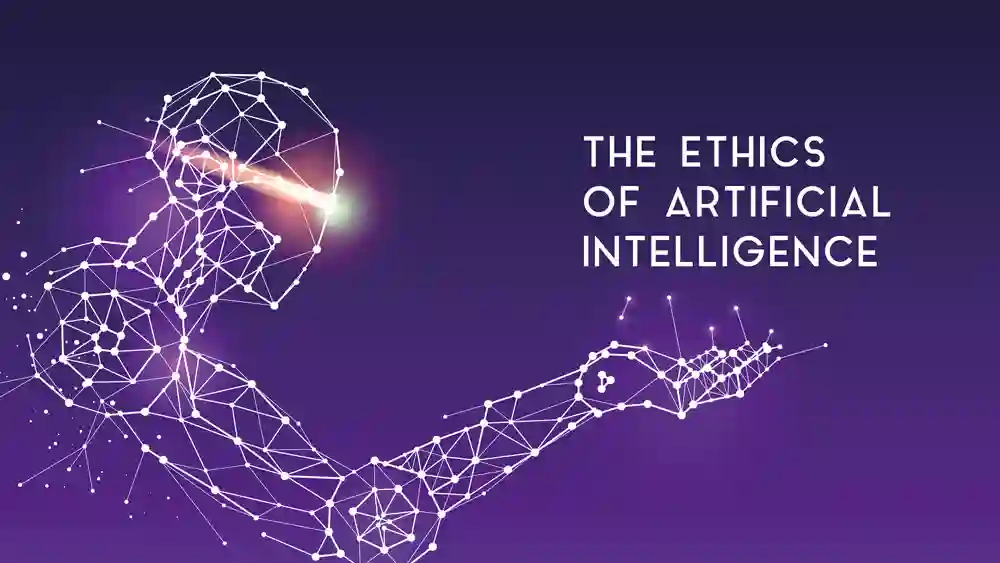Artificial Intelligence (AI) has rapidly evolved, becoming an integral part of our daily lives, from virtual assistants like Siri and Alexa to recommendation algorithms on streaming platforms. While AI promises tremendous benefits, its rapid advancement has raised ethical concerns. The intersection of AI and ethics is a complex and evolving field, and in this article, we’ll delve into the key ethical considerations surrounding artificial intelligence, the challenges they present, and the ways in which we can strike a balance between innovation and responsibility.
The Ethical Landscape of AI
As AI systems become increasingly sophisticated, they are capable of making decisions and predictions that affect individuals, communities, and even entire societies. Here are some of the critical ethical considerations in the field of artificial intelligence:
- Bias and Fairness: AI systems can inherit biases present in their training data, which can lead to unfair or discriminatory outcomes. For example, biased algorithms in hiring processes can perpetuate gender or racial disparities.
- Privacy: The collection and analysis of vast amounts of data raise concerns about personal privacy. AI-powered surveillance systems, data breaches, and the tracking of online activities all pose potential threats to privacy.
- Transparency and Accountability: AI systems are often considered “black boxes” because their decision-making processes are complex and not easily explainable. This lack of transparency can hinder accountability when AI systems make errors or biased decisions.
- Autonomy and Control: As AI systems gain autonomy, questions arise about who should be responsible for their actions. Decisions made by self-driving cars and autonomous drones, for example, blur the lines of accountability.
- Job Displacement: The automation of tasks through AI can lead to job displacement for human workers. Addressing the ethical implications of workforce changes and ensuring a just transition is a significant concern.
- Security: AI can be used maliciously, such as in cyberattacks or the creation of deepfakes. Ensuring the security of AI systems and protecting against their misuse is an ongoing challenge.
- Human Rights: AI can have significant impacts on human rights, including freedom of expression, freedom of assembly, and the right to a fair trial. Balancing technological innovation with human rights is a complex ethical dilemma.
Striking a Balance: Ethics and AI Innovation
While the ethical challenges posed by AI are undeniable, it’s crucial to strike a balance between technological innovation and ethical responsibility. Here are some approaches to navigating this delicate equilibrium:
- Ethical Guidelines and Frameworks: Develop and adhere to ethical guidelines and frameworks for the development and deployment of AI systems. These guidelines can help ensure that AI technologies respect human rights, fairness, and privacy.
- Diverse and Inclusive Teams: Ensure that the teams developing AI technologies are diverse and inclusive, representing a broad range of perspectives and experiences. This can help identify and mitigate biases in AI systems.
- Transparency and Explainability: Prioritize transparency and explainability in AI systems. Make efforts to create AI models that can provide clear explanations for their decisions, promoting accountability and trust.
- Regular Audits and Assessments: Conduct regular audits and assessments of AI systems to detect and rectify biases or unintended consequences. Encourage third-party evaluations to ensure objectivity.
- Public Engagement: Engage the public in discussions about AI ethics and solicit input from various stakeholders, including policymakers, researchers, and civil society organizations. Public input can inform ethical AI development.
- Regulation and Oversight: Establish clear regulations and oversight mechanisms for AI technologies, ensuring that they align with ethical principles and human rights standards.
- Responsible AI Education: Educate developers, users, and the general public about responsible AI use and its potential ethical implications. Promote digital literacy and awareness.
- Human-AI Collaboration: Emphasize human-AI collaboration rather than replacement. AI systems should augment human capabilities, not replace human workers or decision-makers.
- Ethics by Design: Incorporate ethics into the design process of AI systems from the outset. Ethical considerations should be an integral part of AI development, not an afterthought.
- Continuous Improvement: Recognize that ethical considerations in AI are ongoing and evolving. Continuously update and adapt ethical guidelines and practices to address emerging challenges.
Ethical AI in Action: Real-World Examples
Several organizations and initiatives are actively working to address the ethical challenges of AI and integrate responsible practices into AI development:
- Ethical AI Principles: Tech giants like Google, Microsoft, and IBM have published their ethical AI principles, emphasizing transparency, fairness, and accountability in AI systems.
- AI Ethics Guidelines for Governments: Organizations like the OECD have developed AI ethics guidelines for governments to ensure responsible AI deployment in public services and decision-making.
- Fairness in AI: Research groups and initiatives focus on developing algorithms and tools to detect and mitigate bias in AI systems, promoting fairness and equity.
- AI for Good: Numerous projects aim to harness AI for positive social impact, such as using AI for healthcare, climate modeling, disaster response, and wildlife conservation.
Conclusion
The intersection of AI and ethics is a complex and evolving landscape. As AI technologies continue to shape our lives, the ethical considerations surrounding them become increasingly important. Striking a balance between innovation and responsibility is paramount. By adhering to ethical guidelines, fostering transparency, engaging the public, and continuously improving AI systems, we can harness the potential of AI while upholding ethical principles and ensuring a more just and equitable future in the age of artificial intelligence. The ethical journey in AI is ongoing, and it requires collective effort to navigate successfully.






